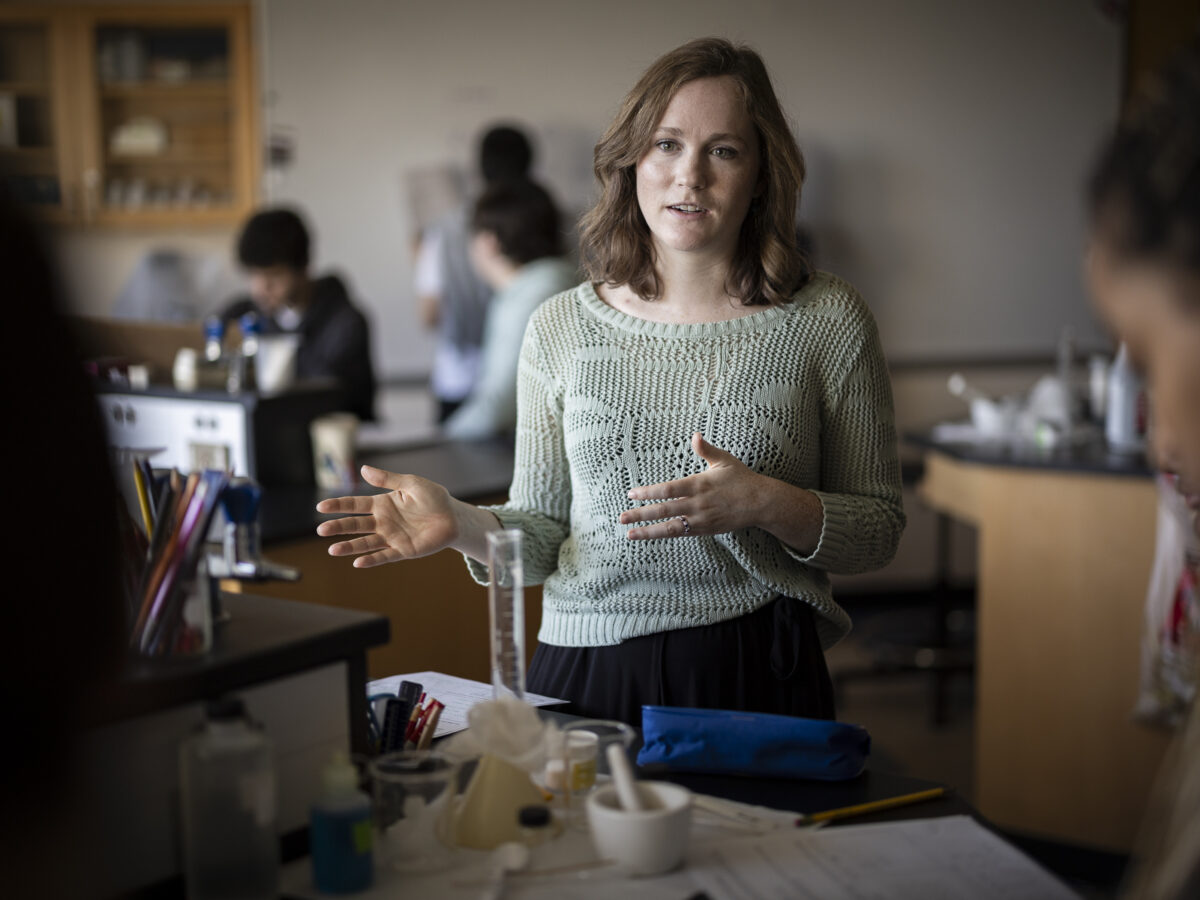Genetics of cancer

Instructor of Science Summer Morrill '11 shares how her passion for genetic research came to be.
Summer Morrill ’11 fell in love with studying biology and genetics while a student at Exeter. But it was her family history of breast cancer that inspired her to study genetics at Tufts, then in graduate school at MIT. “I’ve had the experience of meeting with a genetic counselor to try to understand what’s going on,” she says. “The things I’ve researched and discovered may not make a conscious impact during my lifetime, but there’s something empowering about studying it.”
While Morrill considered becoming a genetic counselor, she decided she was more suited to the academic side of science, especially after gaining teaching experience during graduate school. She teaches a course in cancer biology, BIO586: Molecular Genetics. She proposed it as a special course based on several students’ initial interest, but when she offered it, 25 students signed up. “So many students approached me asking for this course,” Morrill says.
Why so much interest? “Cancer research is a huge field with really interesting biology happening now,” she says. “Also, students personally are interested in learning more about cancer research. The disease touches a lot of families, friends and, at this point in their lives, they probably know someone who has cancer.”
Students in Morrill’s course read current research on cancer genetics and do lab work focused on learning techniques of DNA isolation, analysis and manipulation. Morrill also organizes a panel of biologists — representing organizations including Boston Children’s Hospital, the National Institutes of Health, and Merck — to meet students and answer questions. “The questions the students ask are what researchers are currently asking in the field, which is amazing,” she says.
Morrill is creating further iterations of the course, giving students more opportunities to tie together different elements they have learned, such as thinking how gene mutation works and what the human body can and can’t do in response. “If they understand a problem at multiple levels, that’s going to benefit their problem-solving ability when it comes to thinking about human disease and how we’re treating patients,” she says.
“A course like this can teach students that science is more than just memorizing a set of facts. It’s about being comfortable with the unknown and asking the right questions to further your understanding of the field. I think there’s huge value in that for students — even one who doesn’t want to go into cancer biology — to have the experience of connecting pieces together and doing research of your own to figure out what’s going on in such a new field.”